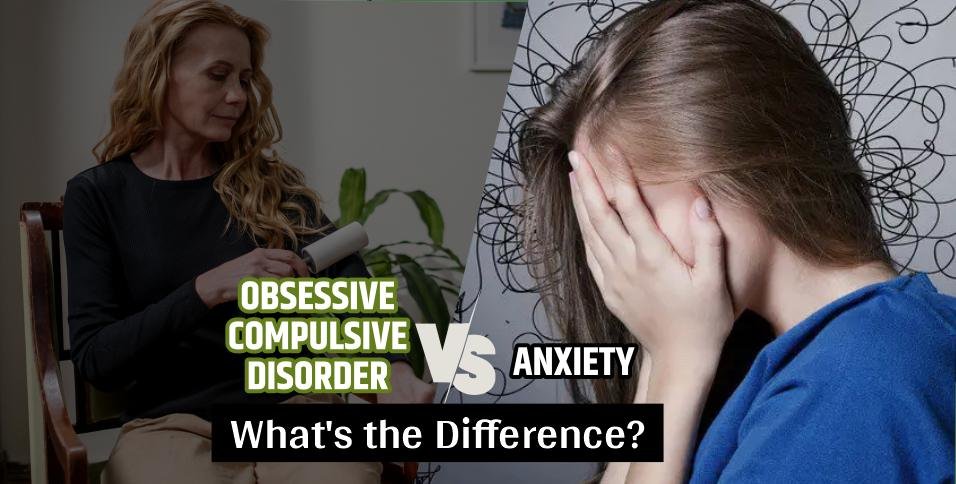Obsessive Compulsive Disorder (OCD) and anxiety are two different conditions that are often confused with each other. Although they share some similarities, there are some key differences that set them apart.
Understanding OCD
OCD is a type of anxiety disorder that is characterized by recurrent and intrusive thoughts, images, or impulses (obsessions) that cause significant distress and anxiety. In response to these obsessions, individuals with OCD engage in repetitive behaviors or mental acts (compulsions) in an attempt to reduce their anxiety. However, these compulsions only provide temporary relief and can become time-consuming and interfere with daily activities.
Understanding Anxiety
Anxiety is a normal and adaptive response to stress or danger. However, when anxiety becomes excessive and persistent, it can interfere with daily activities and lead to anxiety disorders. Anxiety disorders are characterized by excessive and unrealistic worry and fear about everyday situations or events. These worries and fears can be so intense that they interfere with daily activities and relationships.
The Differences Between OCD and Anxiety
While OCD and anxiety share some similarities, there are some key differences between the two conditions. Here are some of the main differences:
Focus: OCD is characterized by obsessive thoughts and compulsive behaviors that are usually related to a specific theme or content, such as contamination, symmetry, or orderliness. In contrast, anxiety is characterized by excessive worry and fear about a wide range of everyday situations or events.
Type of Anxiety: OCD is considered an anxiety disorder, but it is different from other anxiety disorders, such as Generalized Anxiety Disorder or Panic Disorder. Unlike these disorders, OCD is not characterized by sudden and unexpected panic attacks or excessive worry about a wide range of situations.
Purpose of Behaviors: In OCD, compulsive behaviors are performed in an attempt to reduce anxiety caused by obsessive thoughts. In contrast, anxiety disorders are characterized by excessive and unrealistic worry and fear that do not have a specific purpose or goal.
Interference: While both OCD and anxiety can interfere with daily activities and relationships, OCD is often more time-consuming and can significantly interfere with daily functioning. This is because individuals with OCD may spend hours performing compulsive behaviors or mental acts in an attempt to reduce their anxiety.
Conclusion
In summary, while OCD and anxiety share some similarities, they are two different conditions that require different treatment approaches. If you or someone you know is struggling with symptoms of OCD or anxiety, it is important to seek the help of a qualified mental health professional. At MindVibe.com, you can find an excellent Online Therapy service.
With the right treatment and support, individuals with OCD or anxiety can learn to manage their symptoms and improve their quality of life.
Reference: Understanding Obsessive-Compulsive Disorder (OCD)” from the National Institute of Mental Health
















